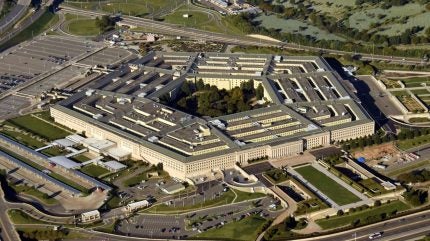
The US State Department issued sanctions against international networks channelling revenue to the Iranian military on 6 February 2025.
Sepehr Energy – an Iranian entity which is considered a ‘front’ company – has facilitated “millions of barrels of illicit Iranian oil shipments to China to fund Iran’s Armed Forces General Staff.”
Furthermore, it is believed that the “proceeds of these sales support terrorist and proxy groups” such as Hamas and Hezbollah.
According to the government-controlled Islamic Republic News Agency, Iran’s petroleum minister, Mohsen Paknejad, rebuked the sanctions during the 46th anniversary of the Islamic Revolution in the Iranian capital, Tehran, on 10 February. The American policies, he said, have already “failed,” adding that “Trump’s ambition to halt Iran’s oil exports is an unattainable dream.”
Specifically, the State Department outlined a plan to pursue “shadow fleet vessels and management companies that transported Iranian oil.”
A country may form a ‘shadow fleet’ – sometimes called a ‘dark fleet’ – to evade sanctions imposed on their energy exports. These illicit fleets employ various tactics to conceal the ownership of transportation vessels and the origins of its cargo.
Such methods are used by Iran’s allies too, particularly Russia, whose shadow vessel is believed to have severed a critical susbsea cable linking Estonia and Finland in December 2024.
US sanctions to increase
Even under President Donald Trump’s progressive predecessor, Joe Biden, the US government had issued sanctions against more than 600 individuals and entities as of April 2024. Although, some observers suggest there were as a many as 7,000 sanctions.
Reasons span from the illicit sale of Iranian oil; human rights abuses related to the 2022 crackdown on protests; the transfer of Iranian weaponry to Russia for use in Ukraine; Iranian support for US-designated foreign terrorist organisations; and Iran’s wrongful detention of US nationals.
Prior to this, Chatham House indicated that Trump’s first administration issued 5,000 sanctions.
Under Trump, who claimed that he intends to “restore maximum pressure on Iran” this month, the screws appear to be tightening. The White House is seeking to strip Tehran of its potential to wield nuclear weapons now that the nation’s strategic position in the Middle East is deteriorating.
Boy who cried wolf?
However, the US president’s sanctions – against anyone and everyone – including, it seems, the International Criminal Court (ICC) on 7 February, may be placing the United States in the role of the boy who cried wolf.
The executive order will “impose tangible and significant consequences” on ICC officials who work on investigations into war crimes against citizens in Gaza.
Trump’s sanctions respond to ICC judges issuing arrest warrants in November 2024 for Israeli Prime Minister Benjamin Netanyahu and former Defence Minister Yoav Gallant, accusing them of alleged war crimes in relation to the conduct of the war with Hamas on Gaza.
An Iranian Ministry of Foreign Affairs spokesperson alluded to the ICC sanctions, stating the decision is “a new low.”
While sanctions may help to disrupt Iran’s military revenues at a practical level, imposing sanctions to contest the legitimacy of an organisation established by the United Nations may isolate the United States; even if neither country ratified the 2002 Rome Statute which established the ICC :
“Such threats and coercive measures constitute serious attacks against the Court’s States Parties,” some of whom are close US allies, asserted the ICC president, judge Tomoko Akane, following the US executive order.
Notably, the former US Defense Secretary Lloyd J. Austin had warned against this isolationist strategy ahead of Trump’s inauguration, having argued that global retreat was out of the question.



